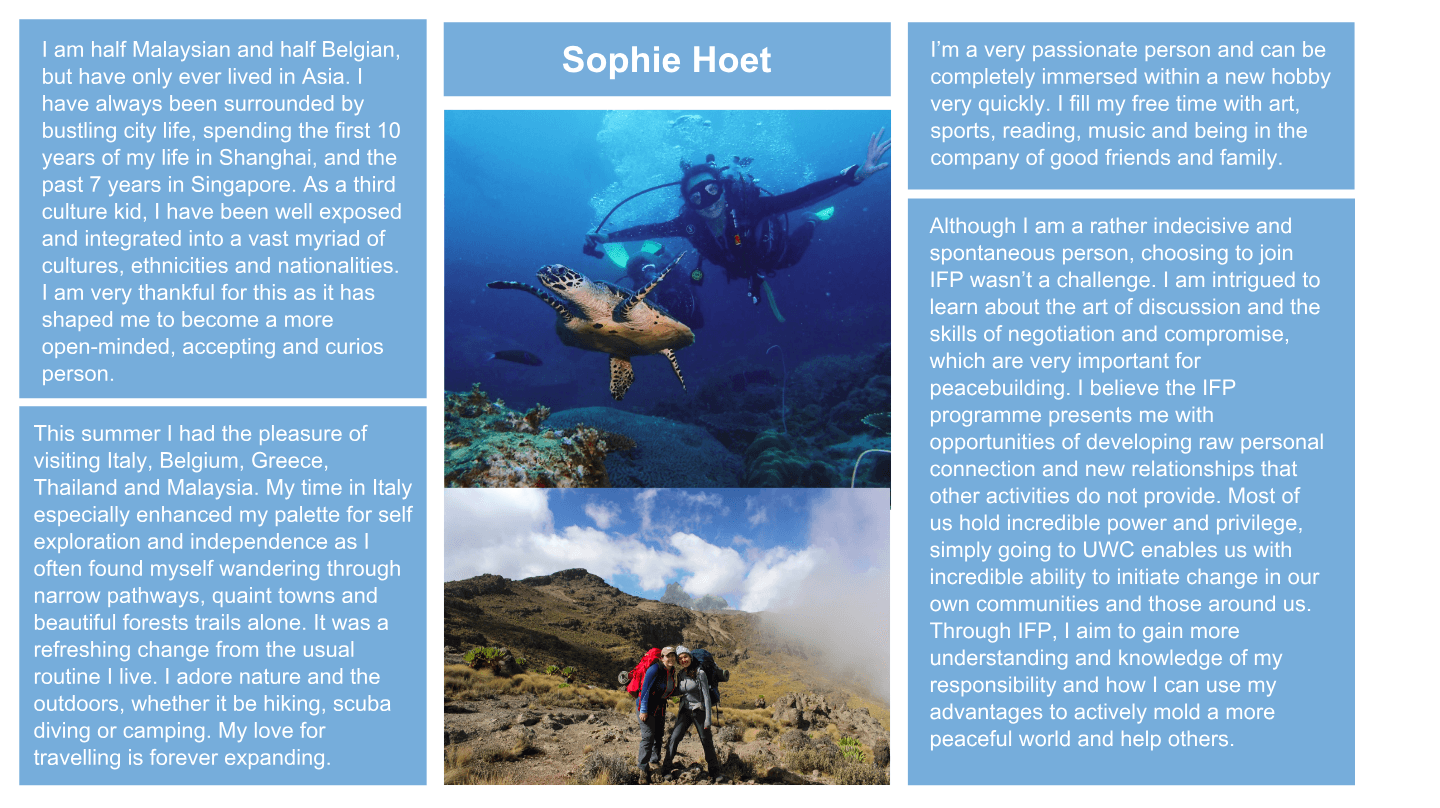Volleyball season has always been a peak point of my school year, the warm sense of family you receive from team sports is often hard to replicate elsewhere. Entering this years team, it is quite obscure to see so many new faces as more than half of our previous members have recently graduated. Nonetheless I am incredibly excited. Personally I believe volleyball is an incredibly complex sport, and is much more than just physical activity. It has engrained a myriad of lessons that have proved greatly beneficial to my character on and off the court: Communication, Quick and strategic thinking, tenacity and commitment being a few of them.
(LO1) This year I hope to help shape a team that is constantly energetic and motivated. Personally, the importance of team spirit cannot be stressed enough. Although one team may be more skilled than another, I believe spirit is the driving force of a groups success. It is that flare and determination within each player on the team that pushes them to strive for success, and sets them apart from other teams. This idea closely relates to the theory of GRIT. Grit is defined as the sustained and continued effort over long period of time and is the skill that I believe makes an individual or a team ‘successful’. It is a skill that volleyball has helped me refine, and benefits me greatly as it transcends outside of the court and into every aspect of my life; academic, social and personal. Regarding my personal goals for this season, I will push to improve on my hitting and defensive skills on court. Furthermore I would like to develop and continue to refine my leadership skills. I could do this through subtle advances of taking initiative to lead warmup, or simple remembering to support and encourage other team mates.
Our first game against Dover: Entering this game there was a unified sense of dread, with glimpses of optimism. UWC Dover have always been our biggest rivals, in most sports I believe the competition runs deep. Last year we had won most of our games except for games against dover, beating dover has always been the last tier on the ladder that we haven’t reached. Last year in Dragons Invitational we had beaten them. It was a glorious moment with the whole bleachers crowded in East supporters cheering triumphantly with every win. This year Dover was the second game we’d play as a new team and although we had won our first game, as team members we wear still settling into the flow of our team. During the game I felt an incredible sense of responsibility, I felt driven to prove that our team could put up a fight. We won the first set, lost the next two sets, won the fourth set and battled vigorously to win the fifth set 17-15. So many moments in the game we were dead tied, or the score would fluctuate between loss and win. Winning the game was incredibly redeeming and motivating, especially since our seasac endeavours led to relegation. It proved to us that even though we have a new team, we have incredible spirit and potential.




